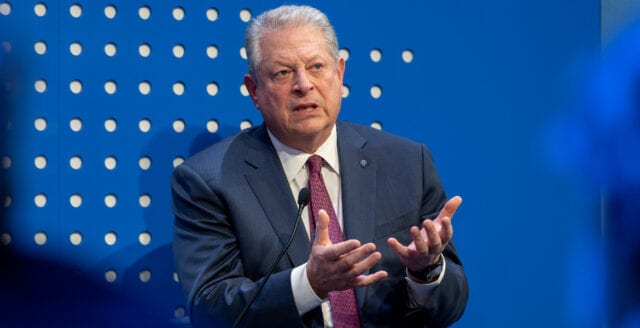Much of the world's climate research is conducted using computers. Various hypothetical scenarios (sequences of events) are run with different assumptions about influencing factors. Depending on the chosen assumptions, they naturally produce different results.
Media incorrectly calls such computer runs "studies". This gives the impression that they would actually happen in reality. But they don't. They are simply assumptions. Computers calculate based on what they are fed.
A current example concerns the Atlantic's major ocean current AMOC (Atlantic Meridional Overturning Circulation). This includes the Gulf Stream, which gives western Europe a milder climate than we would otherwise have. German professor Stefan Rahmstorf and others have calculated its possible development.
The assumption is that more carbon dioxide in the atmosphere would cause Greenland's large ice sheet to melt. Based on this, computer models calculate the possible risk that the Gulf Stream would weaken or even collapse. This would likely give us a colder climate.
The computers seem to have run hot. With continued increasing CO2 levels, 70 percent of model runs show that the Gulf Stream would collapse before 2100. Even with less CO2 input, they calculate a 25 percent risk of collapse.
But the assumption itself is flawed. Partly because higher CO2 levels have marginal and logarithmically decreasing warming effects in the atmosphere. Partly because Greenland's large ice expanses have annual average temperatures of minus 20-30 degrees Celsius.
Returning researchers find their camps covered with snow and ice. The old US military base Camp Century in northwestern Greenland has been covered with 30 meters of ice since it was closed over 50 years ago.
That surrounding sea ice decreases in summer and grows in winter does not affect sea level and hardly affects currents either.
Even though some researchers warn of a weaker Gulf Stream, others do not. According to ocean researcher Léon Chafik at Stockholm University, Sweden, we should not let ourselves be frightened by speculation that the Gulf Stream will soon collapse. His colleague Frederik Schenk urges us to stop alarming about the Gulf Stream.
Tege Tornvall






